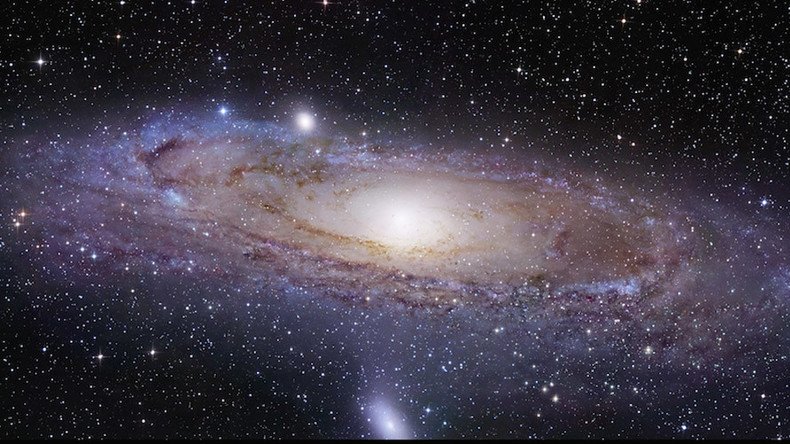Swifter pace of universe expansion baffles physicists

The universe is expanding eight percent faster than our current laws of physics can explain, according to a new study by US physicists.
A discrepancy in the measurement of how quickly the universe is expanding has been found by researchers at the John Hopkins University in Baltimore, and released online.
If independent tests confirm this discrepancy, the laws of physics may have to be rewritten to reflect the latest development, Nature reports.
“I think that there is something in the standard cosmological model that we don't understand,” Adam Riess, astrophysicist, Nobel laureate and study leader, said.
An Illustration of the Expanding Universe
— Tayfun Erkeskin (@TayfunErkeskin) March 16, 2016
NASA, Goddard Space Flight Center pic.twitter.com/WigFyodTgy
The universe has been gradually expanding since the Big Bang. Under current models of cosmology, the gravitational pull of ‘dark matter’ slows the process down, while ‘dark energy’ on the other hand tugs in the opposite direction, accelerating the expansion.
Astrophysicists analyze the rate of expansion by measuring the Cosmic Microwave Background, known as CMB. However, Reiss and his team have drawn on an alternative to CMB involving ‘standard candles’.
A ‘standard candle’ is the term for stars or supernovae with known levels of brightness. By measuring the luminosity of these objects, physicists can use them as markers to track how fast the universe is expanding away from us.
READ MORE: Expandable Martian 'BEAM' pod attached to ISS for test run (VIDEO)
Reiss and his team studied standard candles in 18 galaxies using hundreds of hours of data from the Hubble Space Telescope, and calculated the universe’s speed of expansion to be eight percent faster than previously thought.
This could mean that the universe is stretching more quickly towards its demise, Mother News Network suggests. However, it could also mean that the technique deployed is not as reliable as previous methods, as one University of Chicago astronomer told Nature.
Reiss and his team are currently waiting for their results - which have been submitted for peer review - to be confirmed or disproved.












